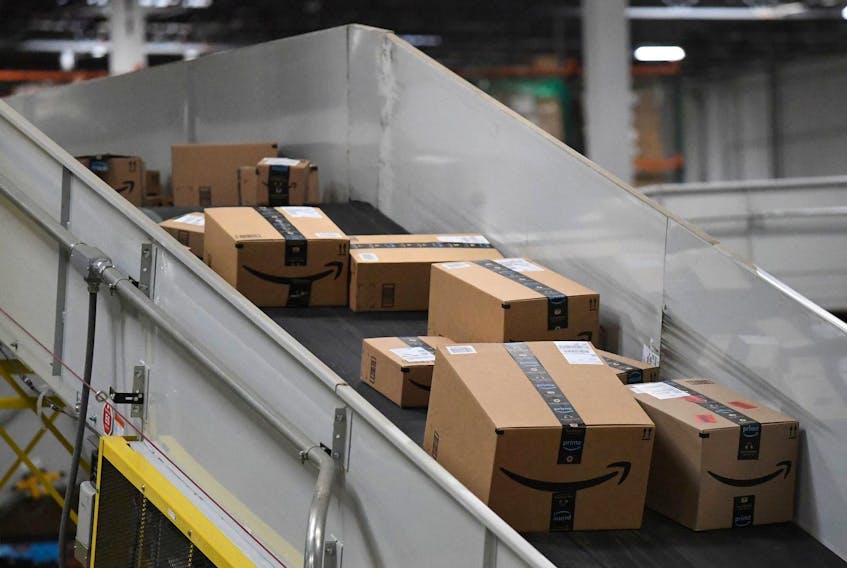The four Atlantic provinces could be missing out on tens of millions of dollars in sales taxes on low-value products ordered online, according to a new report by Canada’s auditor general.
The report, one of five released Tuesday as part of the Office of the Auditor General's (OAG) spring reports, focused on taxation of e-commerce in Canada and found significant deficiencies in the system.
Overall, auditors estimated Canada lost out on $169 million on foreign digital products and services, and that the Canadian sales tax system “did not keep pace with the rapidly evolving digital marketplace.”
Philippe Le Goff, principal for economic affairs with the OAG, told SaltWire this could result in big losses for both provinces that collect their own provincial sales tax (PST) as well as the five provinces that use the joint federal/provincial harmonized sales tax (HST) system: Nova Scotia, Newfoundland and Labrador, New Brunswick, P.E.I., and Ontario.
“Based on what we looked at, it could be for the Atlantic region a couple of dozen, maybe $50 million per year for the whole region,” he said.
E-commerce is a quickly growing industry — auditors pointed out in the report that in the 2017-18 fiscal year, there were 46 million low-value shipments sent by courier from abroad and received in Canada compared with 35 million just five years earlier.
When products are sold online and imported into Canada from other countries, consumers must still pay Canadian sales taxes. In 1993, in order to simplify the process of importing low-value items, the Canada Border Services Agency (CBSA) was put in charge of what’s known as the Courier Low-Value Shipment Program, which encompasses all products sold online that cost under $2,500. Under this program, only products that cost between $20 and $2,500 are taxed, and private courier companies like UPS, FedEx and so forth, acting as the importer, are responsible for assessing and collecting the sales tax owed and remitting the funds collected to the CBSA.
Remittances can’t be checked
Although the CBSA is responsible for validating and collecting both the PST and provincial portion of the HST on purchases of low-value physical products imported into Canada, the report found that the agency did not validate the accuracy of the total amount of the HST remitted to the government and could not ensure that the amount of PST and the provincial portion of the HST received by provinces was accurate.
Le Goff said often couriers do not accurately declare the amount of sales tax to be remitted to the CBSA, though he was not able to single out any specific companies.
According to the report, the CBSA has relied on the good faith of courier companies in declaring and remitting sales taxes, but even though the agency had indications that these companies did not declare the full taxes owing to the government, officials did nothing to resolve the issue.
Accuracy, compliance issues
Auditors pointed out a number of recent assessments showed noncompliance and undervaluing of goods by couriers.
“What’s happening is monthly the couriers are sending a consolidated cheque to the CBSA but the CBSA is unable to validate if the value of the cheque is appropriate given the volume and value of goods that entered the country,” Le Goff said.
The issue is not that couriers aren’t keeping track, but, Le Goff said, that the CBSA does not have the data management capability to use that information to verify the taxes being collected are accurate.
Compounding the matter, the report points out, are the poorly designed forms used by courier companies to declare and remit the PST and the HST. The form has no specific field to declare the rate and amount of the HST or the PST to remit to the CBSA, only a field for the federal Goods and Services Tax (GST), making it even more difficult for the CBSA to validate the provincial portion of taxes remitted by these companies.
In the report, auditors made several recommendations to the CBSA to better manage low-value shipments, including upgrading its data analytics capacity to be able to utilize and validate courier data, improve its forms to include provincial sales tax and HST, and take steps to better manage non-compliance by courier companies.
The CBSA agreed to all recommendations, saying it will refine its e-commerce strategy and commit to a plan with implementation timelines before the end of the 2019-20 fiscal year. The agency also agreed to examine options to further automate the Courier Low-Value Shipment Program, including the ability to receive, process, and analyze customs data by March 2023.
“The couriers have all the information that is needed by the CBSA to do a good job on the validation of information,” Le Goff said. “Therefore having compliant systems that are able to track, compare and validate that information will make sure tax collected and remitted is accurate.”









